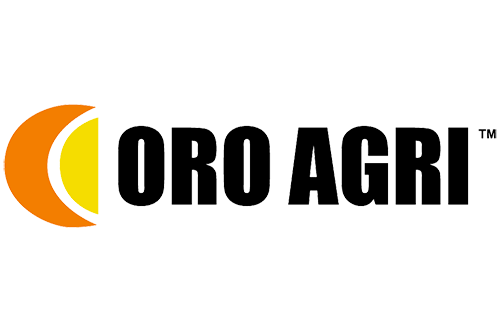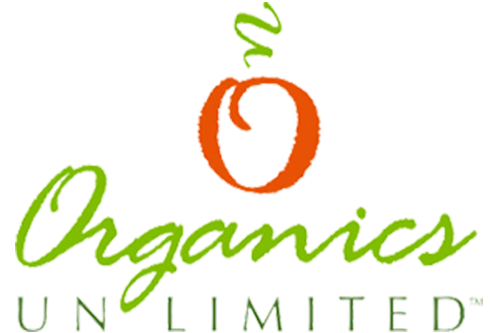Carrots, kale, the first parsnips and pumpkins, vegetables in all shapes, shades and sizes have pride of place on this sunny and mild autumn Saturday. Not just organic vegetables are on sale outside the local church. Here in east London’s Stoke Newington, you can also buy apples, fish, dairy, meat, bread and homemade pies. You can get yourself some tea or posh coffee to go with a slice of vegan cake, have a traditional Turkish wrap with spinach and cheese, or an all- day breakfast. “All produce sold at the market is organic,” says Kerry Rankine, a tall, friendly Scot who oversees the Growing Communities‘ market, “and everyone who prepares fresh food here is sourcing as much as possible from the market — even the vegan cake guys, they use mushrooms, pumpkins and chillies from the sellers here.”
At some point during market day you are also likely to spot Julie Brown. Casually elegant with spiky grey hair, the founder and director of Growing Communities is a regular.
The market is just one of the many Growing Community hubs, another one is just a few hundred yards along the busy High Street, at the Old Fire Station. Apart from some office space, there is a yard where every Wednesday 1,300 vegetable and fruit bags are packed for delivery to the pick-up points. And there is a cold-storage facility for the various deliveries by farmers and growers.
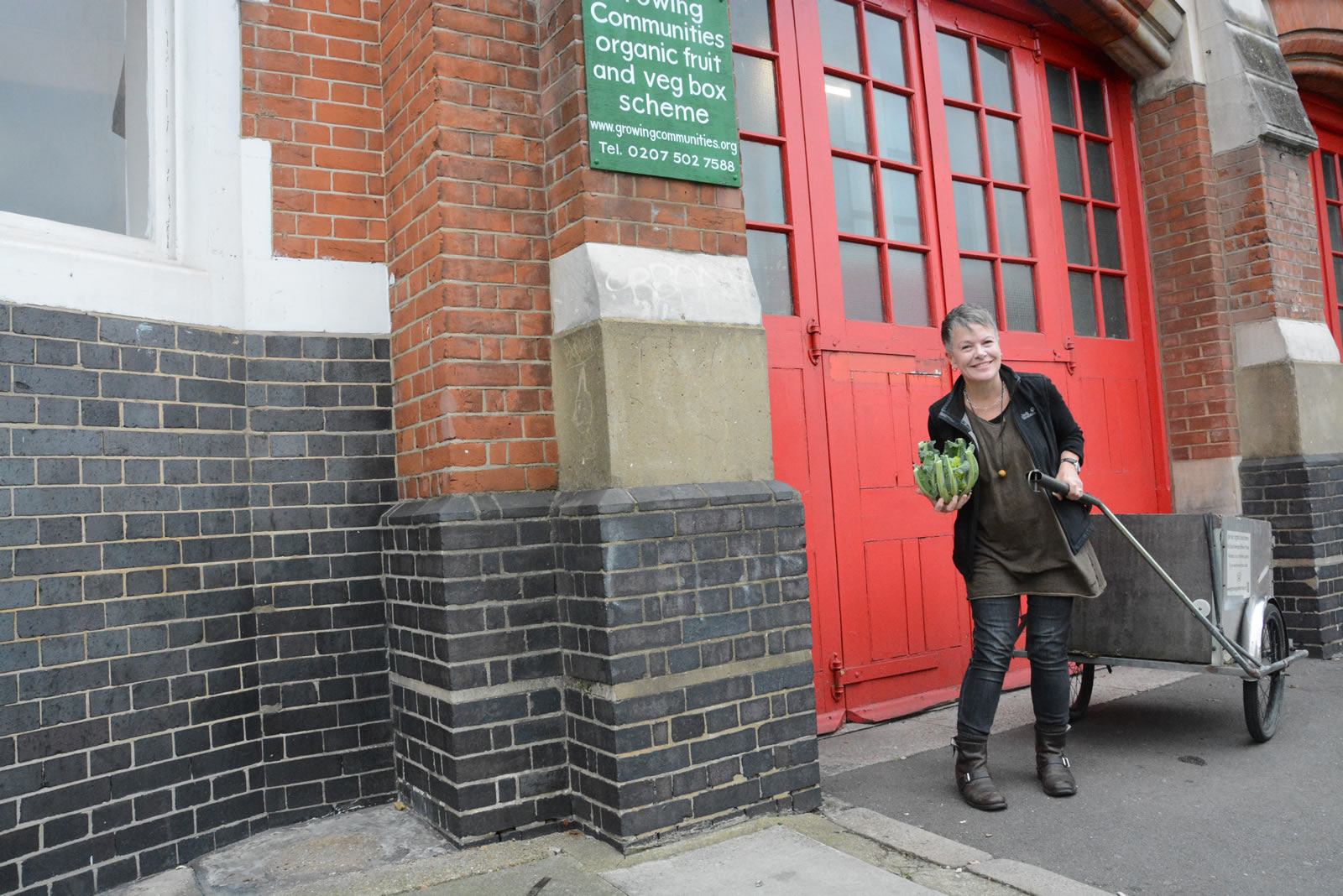
A giant turtle makes and impression
Setting up a food network was not exactly a childhood dream for Brown, but “doing something” certainly was the plan. With her Dad in the army, the family moved a lot, not just in the UK but also to army bases in Germany. She still remembers watching a nature program about a giant turtle on the Galápagos Islands, the last of its kind. “It looked really sad and I thought: it’s staring extinction in the face.” Environmental protection became a big topic for her, “In the ’90s we had all these theoretical and highly abstract discussions about the environment, about agriculture, about climate,” she says, “I just thought: let’s do something and see where we go.” In 1993, inspired by the CSA model in the U.S., she started a small veggie box scheme with her garage as a pick-up point. A few things became clear quickly: people need vegetables not just in the growing season but all year round. And farmers need to be paid a fair price so that they are able to produce organic food sustainably.
Growing Communities was officially founded in 1996. Today, there are 24 part-time staff. Everyone is paid at least the London living wage (with the highest salary being no more than double that). Their vision of what a sustainable food and farming system should look like centers around food zones: five percent of what city dwellers eat, salads, leafy greens and some fruit, can be produced by urban growers. Seventeen and a half percent of vegetables should come from a peri-urban zone: small farms on the outskirts of a city. Field crops like potatoes or grain, dairy and meat are supplied from farms in rural areas or, depending on the season, have to be sourced from further afield.
Growing Communities manages to source 90 percent of all vegetables from the UK, 65 percent is sourced directly. Of the fruit, close to a third was grown in the UK, which, size wise, could fit into the state of Oregon.
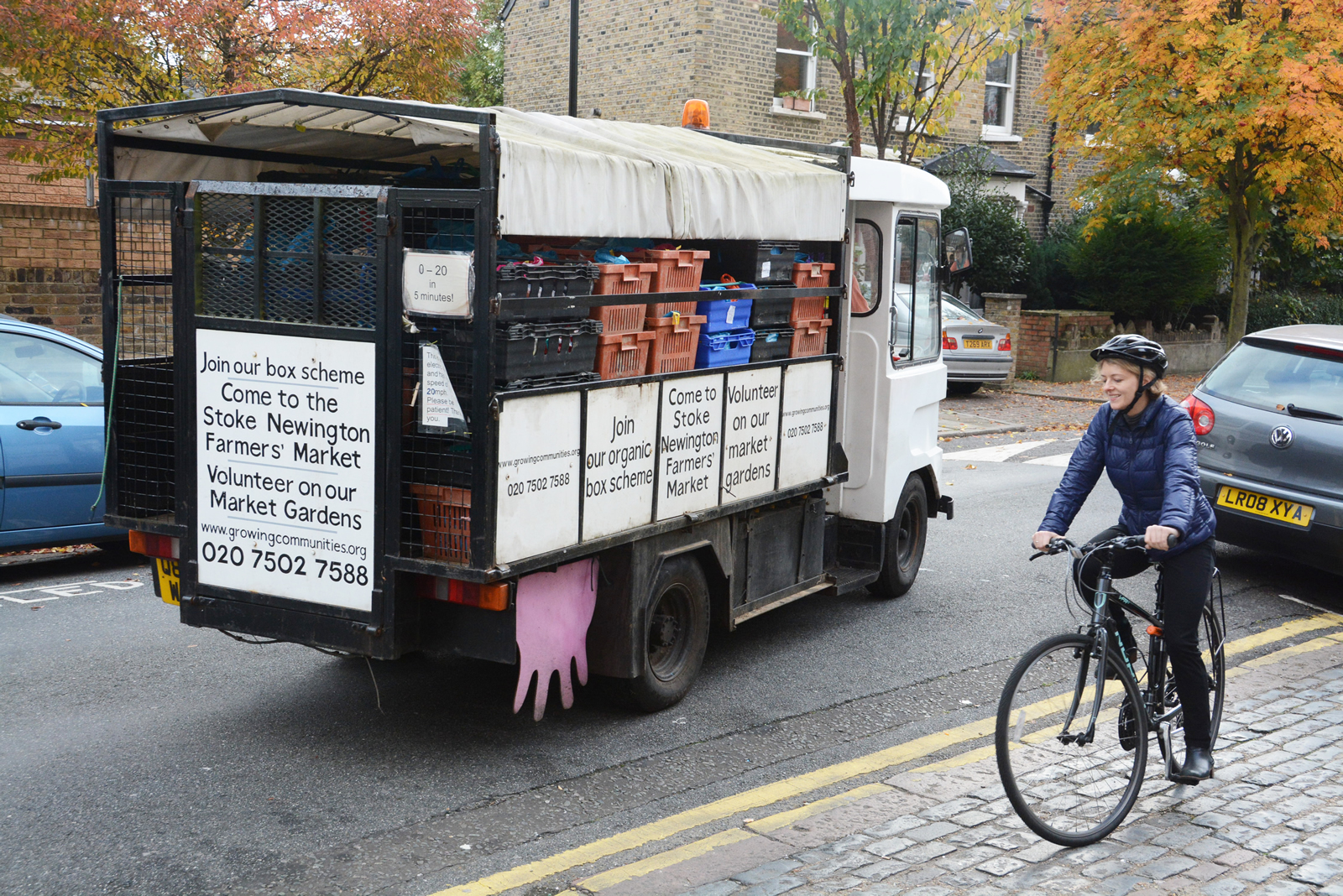
Salad in the city
Today, there are 29 farmers and growers who are supplying vegetables and fruit on a regular basis. Amy McWeeney coordinates the veggie bag content each week and matches growing plans and actual availability each week with top up orders from the whole seller they’ve been working with from the start. Long-standing relationships with the farmers are really important, says Julie. “The quality of the produce is essential, but the only issue we’ve ever had was we had to go to a farmer and say: this can’t be right, you are not charging us enough.”
All salad for the bags comes from the Patchwork Farm Project. In 2011, a three-year grant helped Growing Communities to find nine vacant, derelict plots in east London, clear them, get a Soil Association group certification and provide six months training for young growers. They are now self-employed and work their plots, which should equal one day of work/income per week. Everything else is done as a collective: harvesting, sorting, packing and delivering the salads. Growing Communities buys all produce from the Patchwork Farms at a fixed price. A certain quantity of salad is sold with a mark-up to local shops and restaurants; this small extra revenue just about covers additional costs like salad bags, bag sealers and labels. “Growing Communities is about farming, trading, producing, and all of it must be financially viable and provide jobs.” says Brown.
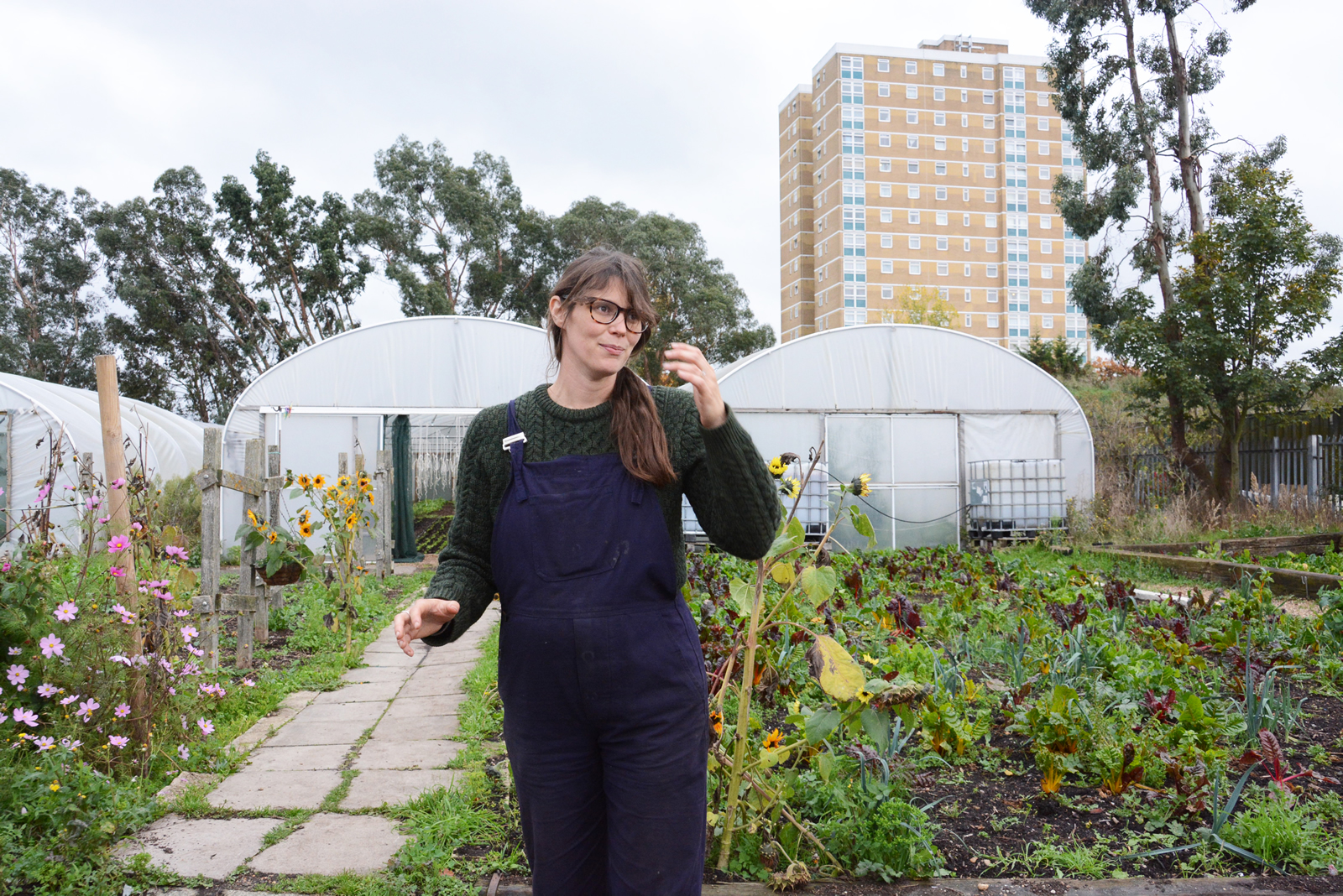
Grown in Dagenham
If you’ve seen the film Made in Dagenham, you know that this suburb at the eastern periphery of London used to be the home of a Ford car plant and some very feisty women. Ford has gone, but the women are still around.
Dagenham is a deprived area, unemployment is high, a lot of people live below the poverty line, and the housing estates — or projects — are bleak and rundown. Opposite the underground station are a few shops where you can have your nails done, get a tattoo and buy a take-away, but only the Newsagent store stocks some food basics.
It’s a 20-minute walk along the busy through road until you come to the Dagenham Farm. Growing Communities was able to lease the 1.7 acres in 2012, a stroke of luck, not just because that much land in a peri-urban zone is hard to find, but also because it used to belong to the Dagenham parks department. And while the green houses and poly tunnel frames were in bad shape, they could be repaired. The downside: there was no soil. “We had to get rid of layers of gravel and concrete everywhere,” says grower Alice Holden, “and when we finally reached the soil layer underneath, it was dead, there wasn’t a single worm.” Some 300 tons of manure and heaps of compost later (the farm gets two tons of fruit pulp per week from one juice company alone), the soil is great and the farm productive. In the first year after the funding ended, there was enough produce to cover expenses, Holden’s salary and even a tiny profit which is being reinvested. The farm produces mostly leafy greens, like chard and spinach, tomatoes, french beans, cucumbers, fennel and herbs — things that provide a continuous crop rather than one harvest, says Holden. She’s very pleased with the quality of the soil now, “we don’t use any mechanical equipment, and you can really see the white mycorrhiza strands.”
The farm works with lots of volunteers. This afternoon Dave is shifting compost. Hard, physical work, but he enjoys it. He, like many in Dagenham, has been unemployed since the Ford plant closed. “The farm is the interface of farming and community,” says Holden who enjoys working with the volunteers. Among them are a group of students with learning disabilities from the nearby college who come once a week.
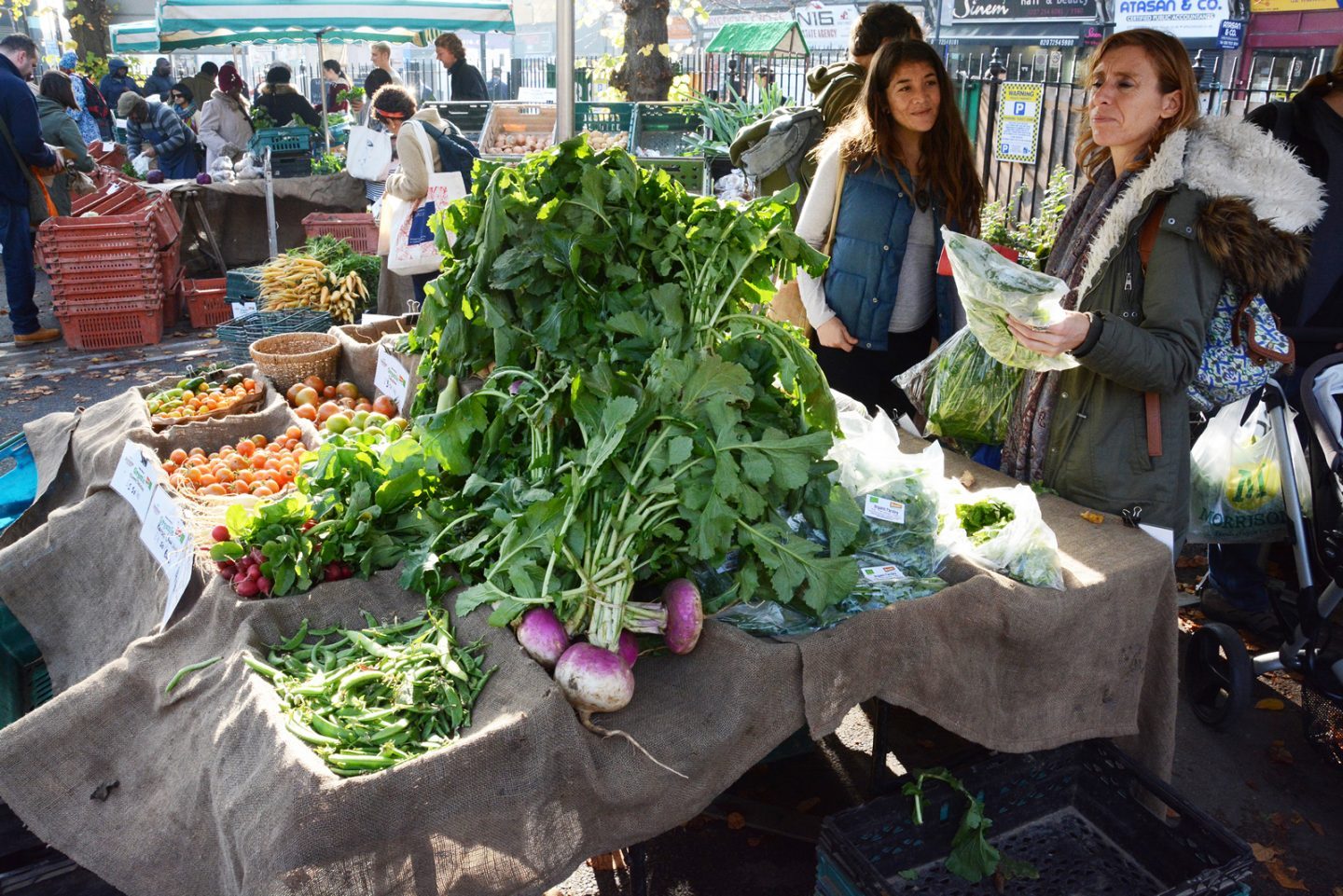
Helping others to do their thing
The team at Growing Communities just got grant money to realize some big plans at the Dagenham Farm: a kitchen which can be used for cooking classes, to prepare meals for volunteers and Growing Community events and to preserve surplus produce. During the season fresh produce will be on sale under the label “Grown in Dagenham,” not only at the farm gate but also at a stall near the underground station. And there will be a trainee programme with hours scheduled to suit single parents. Which may well lead some right to the Saturday market in Stoke Newington, where aspiring food producers get a chance to test consumer reaction and practical help to build up a business. “At the market we chat, we spot opportunities and we work to make it happen,” says Holden. She makes it sound so easy, but Growing Communities has invested a lot of effort into helping others set up community food schemes like the veg bags. Interested groups need to have done their research (what is the customer base, where would the pick-up points be?) and write a business plan. Then they get access to the online tool kit Growing Communities has developed as a step-by-step guide, and face-to-face mentoring takes care of the rest. So far 11 groups have successfully started community-led box schemes, in other parts of London, but also in Manchester, Burnley and Margate. And Holden will write up the lessons learnt from the Dagenham Farm project, another tool kit might be in the making.
Where does Holden see Growing Communities in 10 years? She looks a bit puzzled, because for her it’s not about a big plan, but about making connections and deepening and strengthening the network of farmers with producers, with other farmers, with traders with consumers. In 10 years? “I hope we’ll still be here and striving.”

